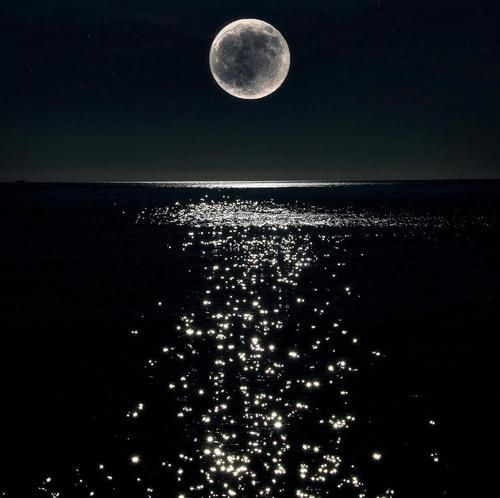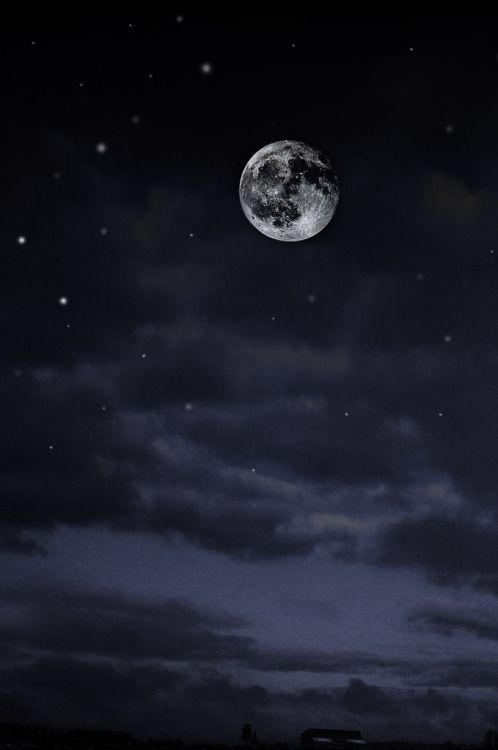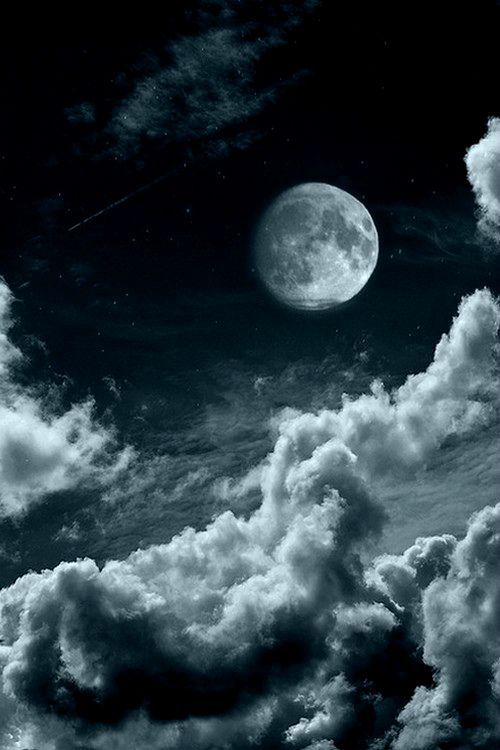Sacheen Littlefeather Has Passed Away On October 2nd 2022. While People Remember Her For Her Acceptance

Sacheen Littlefeather has passed away on October 2nd 2022. While people remember her for her acceptance speech on behalf of Marlon Brando, know that she also ended the media blackout of the Wounded Knee occupation, won an Emmy & co-founded the American Indian AIDS Institute of San Francisco.
More Posts from Poeticcos and Others
Klaus: I wasn’t that drunk.
Viktor: You colored my face with a highlighter because you said I was important.
Klaus: BECAUSE YOU ARE!

Van Gogh's Starry Night with the first image taken by the James Webb telescope by alpgenart (via astronomy_eye)
klaus has this habit of searching for answers and purpose in the same place he lost them. his autonomy was stolen from him as a child, and he lives with that loss every day. it’s quite common for people with that experience to live with dissociative symptoms, and i actually think klaus is a realistic portrayal of that. while it’s never outright said that it’s dissociation he deals with, i think a lot of survivors could probably see it in him. he’s always seemed to feel a disconnect with himself, with his own body (for example – and this is a small one – when he told ben “you’re not getting in this body,” rather than my body). his identity is something transient, something that shifts drastically sometimes depending on the situation he’s in, which is a common experience in people with dissociative symptoms – we’re like “chameleons.”
he forgets key things regarding his trauma: that, or his brain will twist the events to make them more palatable to himself. he didn’t remember being killed as a child, even though it happened multiple times. and despite not remembering anything, he still has visceral reactions when it comes to being confined. he may not consciously remember every event, but his body does, and so he reacts accordingly, as if the threat of being killed again were a present one. because the body remembers the loss of control, it remembers the autonomy that was once stolen. then there’s “bus ball.” obviously, it was an objectively shitty, terrifying thing, being once again murdered, multiple times by your own father and abuser – and as an experiment, no less. despite that, the events were portrayed as something that was for the most part fun, almost. and when he vaguely recounted said events later on, he referred to it as “bus ball.” like it really was nothing more than a game. that’s another common dissociative symptom, and a common trauma symptom: being so disconnected on a certain level from your own trauma that you’re able to talk about it like it’s nothing. that you’re able to remember a skewed version of it so that you don’t have to internalize any of the real terror.
touch is another one. klaus is a very tactile person. he communicates well through touch. but he often doesn’t like being touched, unless it’s from someone he knows, loves and trusts.
he startles easily, too. will jump back at sudden movements or words, gets frightened by loud noises and will cover his ears.
his need for connection is relevant here, too. he has a hard time being alone with himself, and so he finds people to cling to, or finds people that will cling to him, just to stave off those feelings and to ground himself, almost. sometimes it spirals out of control, like with the cult. but his constant need for connection stems from feeling disconnected.
one of his passing comments to luther in s1 (”I remember my first time… oh no. i don’t”) hits hard, too. it’s not uncommon for trauma victims to experience hypersexuality as a result of this loss of autonomy. and then, to not even remember some of these encounters (obviously, the drugs/alcohol likely play a role in this not remembering. but hey, what’s addiction often a symptom of? oh yeah. trauma.)
this disconnect he feels from his own body is also why he was able to have certain encounters even with people he didn’t like. keechie comes to mind. he didn’t like keechie, that was made clear. but it sounds like he still had no problem having sex with him, despite this. it’s common, when you have dissociative symptoms, to feel this sort of disconnect. you don’t always care what happens to a body that doesn’t feel like yours, hell, you can enjoy it, sometimes – even if you don’t like the person you’re doing it with.
it’s why he gets off on torture, too. klaus being a masochist was clearly portrayed in episode four, but then was referenced again two other times. (”if i see a boner, i’m out” when he was being tied up, and, “i’m going to beat you, and not the way you like it.”) when you grow up tortured and become accustomed to it it’s easy for the brain to say “hey, this is unbearable so actually we like this thing now. that’ll make it bearable!” i mean, obviously it’s a little more complicated than that, but that’s the gist of the situation.
you often find comfort – or even pleasure – in familiarity, even when familiarity isn’t safe. we see that in klaus.
and that leads me back to my main point: klaus searches for answers, he searches for purpose in the same places he lost them. if he can give up his body to anyone who will take it, then maybe he can take back autonomy, is what he might think. if he can have a say in his own destruction, whether it’s addiction or reckless behavior, then maybe he can take back control.
but that’s never truly how it plays out. a trauma survivor will never find what they’re looking for this way. i believe that klaus is starting to realize this, even if he does run into setbacks, and even though he will continue to run into setbacks. if he wants to find control, and if he wants to find purpose, he will have to reroute that energy into a path of recovery rather than destruction. it’s a hard hill to climb, but we know he can do it.
i could say more about this, but i think this says enough, for now.
I kinda keep forgetting their situation as something that's tremendously traumatic, which is probably due to how often it happens. 😅 With that, yeah, I should have also considered "why" they're doing it and if it would be something they'd stop doing once the traumatic situation ended, which we can see some of them not drink until they find out the world is ending again (or in Allison's case in S3 she starts drinking when she realized Claire isn't in the current timeline and later on drinking and smoking).
I agree that I wish there were more episodes because not only do I want to get an answer to some of the questions we all have, like Allison's current situation, but I also want to see Klaus at least managing his addictions and maybe even having help from everyone. By then, not only would he be in a different environment that isn't as similar as his environment in S1 (and hopefully no impending doom like S2 and S3), but he'd also have a support system that he needs and wants. I want to see him get sober and not just because it's nice to see character development that's good for them and their wellbeing, but also because I'd love to see more media portray that if you're suffering from addictions it doesn't mean your life is completely ruined. I don't want his addictions in S1 to be seen as "some quirky thing we can added to him that we'll never talk about again". I'd also love to see him turn down an alcoholic drink because he knows it'll affect him negatively or his siblings always make him mocktails and such with everyone else so he doesn't feel so alone. I'd be surprised if we get any of that in S4, but a man can dream.
I saw your post talking about Klaus' addiction and how his family plays into the role of how society tends to treat addicts, which I totally agree on and I'm so thankful to see others speak up on it, but I also wanted to bring up that there's even more issues with how some people in the fandom, and society as well, treat addiction.
A lot of society only treats addicts horribly if their drug(s) of choice are "hard drugs". Nobody sees Allison's smoking cigarettes in S3 or all the drinking done in all seasons as an addiction because they've been so normalized. They're so normalized that there are hundreds of shows that show a lot of drinking and/or smoking cigarettes/cigars and hardly anyone considers any of those characters as addicts.
And I think that also plays into the way Klaus' siblings treated him while struggling with addiction because they participate in it too, but they never get called an addict because their addictions are "normal". "Why can't Klaus just drink like everyone else and not do 'hard drugs'"?
Oh absolutely, I did actually get into this a bit in a follow-up post (here)
And like, addictive behaviours can latch onto anything. Gambling, exercise, food, shopping, music, sex, gaming... if it gives a moment of happiness and dopamine it can become maladaptive as an outlet and an escape...
Alcohol causes much more social and physical harm than many "hard" drugs, and in much smaller quantities, despite being much more socially acceptable. And it isn't criminalized in the same ways (which is good, because criminalizing a health issue is wrong and doesn't work, because social rejection and judgment force people deeper into addiction, and by making things illegal you create black markets and fund organised crime and really do everything to increase the problem at hand).
And you're right in that the siblings (and society) treat drinking (and smoking) as different, even with Klaus who is very much an alcoholic...
Because many people do turn to bad habits and alcohol during bad times.
But it is interesting to note that while a large number of the siblings are self-medicating during that time due to their level of alcohol use, and in a very unhealthy way, it doesn't necessarily mean they're addicts as well. Or rather, not addicts in the same way as Klaus.
I'm reminded of a study done about drug use, particularly heroin usage, by soldiers in the Vietnam War. Where drug use was ubiquitous and at incredibly high levels. And yet when most of these soldiers returned home they stopped using it entirely (and this is a physical dependency causing substance, so unsupervised withdrawal can easily kill a person).
Because they were no longer in the situation they wanted to escape.
Of course not every soldier stopped using, and the homeless, addicted veteran is a well-known figure in the popular consciousness for a very real reason. But often those soldiers who kept using weren't coming back to any sort of support system or a good situation at all. And there was, and still is, a huge lack of support for the trauma inflicted by war on those forced into it ( I say as someone who had half their family conscripted into a Cold War related war, even if it wasn't the Vietnam War specifically).
It was something of a real-life example of the Rat Park experiment, which has trended on Tumblr before, and also illustrated how connected addicted behaviours are to the environment that people are in...
But this is to me part of why they treat their behaviour as "different" and why they also don't bother Klaus about his drinking in s2 and 3, even as he consumes much more than any of them and started carrying a flask again that he's seen drinking from constantly, even in the less stressful situations he's in since he first relapsed s2...
Because he can't stop once he started again.
The others can't comment on his drinking, if they even notice it with everyone being so wrapped up in their own things, because they're all also drinking at unhealthy levels, particularly in s3, and it's the end of the world so from their perspective, "fuck it!". But even though their own dependency at that point is unhealthy, it's still not at the same level as Klaus's...
Because there is nuance when it comes to addiction and dependence and situational dependency and so much else...
But it is also cause for them to finally sympathise and recognise that "there goes them but for the grace of god", because they really aren't as different as they would like to think... (which tbh, it seems like Luther got after s1, given how he's treated Klaus since)
This is another reason why I'm also so sad about the 6 episode announcement. Because these things being addressed would be best without the apocalypse hanging over them all and giving them the excuse to ignore stuff
But yeah, I think they're gonna be stretched to try and wrap up the plot, and character development and moments are gonna be sacrificed...
Anyway, I have so many thoughts about these topics, and I am so thankful for every ask that allows me to indulge in me thinking my thoughts!
Five: No drinking, no gambling, no premarital sex. Klaus, they basically just outlawed 90% of your personality
Klaus: We need to leave
The chaotic energy behind Klaus's "we played catch!" is giving me new life. Klaus, you died.
Petition for Emmy to finally be able to keep her own hair as Allison in S4.
-
 angryanddisappointedwoman reblogged this · 1 month ago
angryanddisappointedwoman reblogged this · 1 month ago -
 ibelivedinmyself liked this · 1 month ago
ibelivedinmyself liked this · 1 month ago -
 favstonerfairie liked this · 1 month ago
favstonerfairie liked this · 1 month ago -
 pu55yswag liked this · 1 month ago
pu55yswag liked this · 1 month ago -
 delicatemusicandcandylover reblogged this · 1 month ago
delicatemusicandcandylover reblogged this · 1 month ago -
 deepglittergiver liked this · 2 months ago
deepglittergiver liked this · 2 months ago -
 cherrywaves999 reblogged this · 3 months ago
cherrywaves999 reblogged this · 3 months ago -
 thedivinefeminine999 liked this · 3 months ago
thedivinefeminine999 liked this · 3 months ago -
 sanktalucrezias liked this · 3 months ago
sanktalucrezias liked this · 3 months ago -
 jamalexlee liked this · 3 months ago
jamalexlee liked this · 3 months ago -
 jvcaerys liked this · 3 months ago
jvcaerys liked this · 3 months ago -
 importanttigerartisan liked this · 3 months ago
importanttigerartisan liked this · 3 months ago -
 forbidden-cookie liked this · 3 months ago
forbidden-cookie liked this · 3 months ago -
 runningdownthatroad reblogged this · 4 months ago
runningdownthatroad reblogged this · 4 months ago -
 afterimageofacrimsoneye liked this · 4 months ago
afterimageofacrimsoneye liked this · 4 months ago -
 dulceana reblogged this · 4 months ago
dulceana reblogged this · 4 months ago -
 theblaqallie liked this · 4 months ago
theblaqallie liked this · 4 months ago -
 beby-grogu liked this · 4 months ago
beby-grogu liked this · 4 months ago -
 cinabunhugss liked this · 4 months ago
cinabunhugss liked this · 4 months ago -
 baddestvenus-in-virgo liked this · 5 months ago
baddestvenus-in-virgo liked this · 5 months ago -
 pizzadisaster liked this · 5 months ago
pizzadisaster liked this · 5 months ago -
 teacup-warrior reblogged this · 5 months ago
teacup-warrior reblogged this · 5 months ago -
 zafiroxdsgsg liked this · 5 months ago
zafiroxdsgsg liked this · 5 months ago -
 crispycoffeestudent liked this · 5 months ago
crispycoffeestudent liked this · 5 months ago -
 averillkillsyou liked this · 5 months ago
averillkillsyou liked this · 5 months ago -
 headinfantasy reblogged this · 5 months ago
headinfantasy reblogged this · 5 months ago -
 headinfantasy liked this · 5 months ago
headinfantasy liked this · 5 months ago -
 functionally-immortal reblogged this · 5 months ago
functionally-immortal reblogged this · 5 months ago -
 leavemealonepl liked this · 6 months ago
leavemealonepl liked this · 6 months ago -
 microcosmiclymbic reblogged this · 6 months ago
microcosmiclymbic reblogged this · 6 months ago -
 free-radicand reblogged this · 6 months ago
free-radicand reblogged this · 6 months ago -
 finalgirl-nihilbliss reblogged this · 6 months ago
finalgirl-nihilbliss reblogged this · 6 months ago -
 annita89kh109y6h liked this · 6 months ago
annita89kh109y6h liked this · 6 months ago -
 annita89bp5uegh liked this · 6 months ago
annita89bp5uegh liked this · 6 months ago -
 scarlettlullaby16 reblogged this · 6 months ago
scarlettlullaby16 reblogged this · 6 months ago -
 scarlettlullaby16 liked this · 6 months ago
scarlettlullaby16 liked this · 6 months ago -
 thequeenundying reblogged this · 6 months ago
thequeenundying reblogged this · 6 months ago -
 chernogrivka liked this · 6 months ago
chernogrivka liked this · 6 months ago -
 annao4str liked this · 6 months ago
annao4str liked this · 6 months ago -
 forgetful-amoeba reblogged this · 6 months ago
forgetful-amoeba reblogged this · 6 months ago -
 greeklyuniverse reblogged this · 6 months ago
greeklyuniverse reblogged this · 6 months ago -
 greeklyuniverse liked this · 6 months ago
greeklyuniverse liked this · 6 months ago -
 imagine-a-name-here liked this · 6 months ago
imagine-a-name-here liked this · 6 months ago -
 rainbow-feather-22 reblogged this · 6 months ago
rainbow-feather-22 reblogged this · 6 months ago -
 crunchy-multi-fan-one-9 reblogged this · 6 months ago
crunchy-multi-fan-one-9 reblogged this · 6 months ago -
 ramblinseahorsey reblogged this · 6 months ago
ramblinseahorsey reblogged this · 6 months ago -
 lion-in-winter liked this · 6 months ago
lion-in-winter liked this · 6 months ago -
 magnamatre reblogged this · 7 months ago
magnamatre reblogged this · 7 months ago -
 sidereal-sapphic reblogged this · 7 months ago
sidereal-sapphic reblogged this · 7 months ago

DNI: Homophobic, transphobic, Ace/Aro-Exclusionist, racist, xenophobic, classist, ableist, sexist, antisemitic, pedo, anti-shippers.
104 posts




































